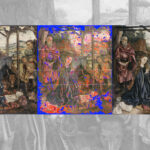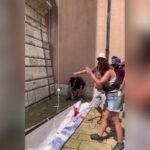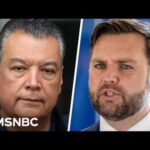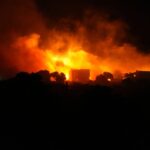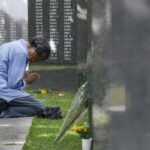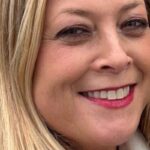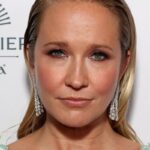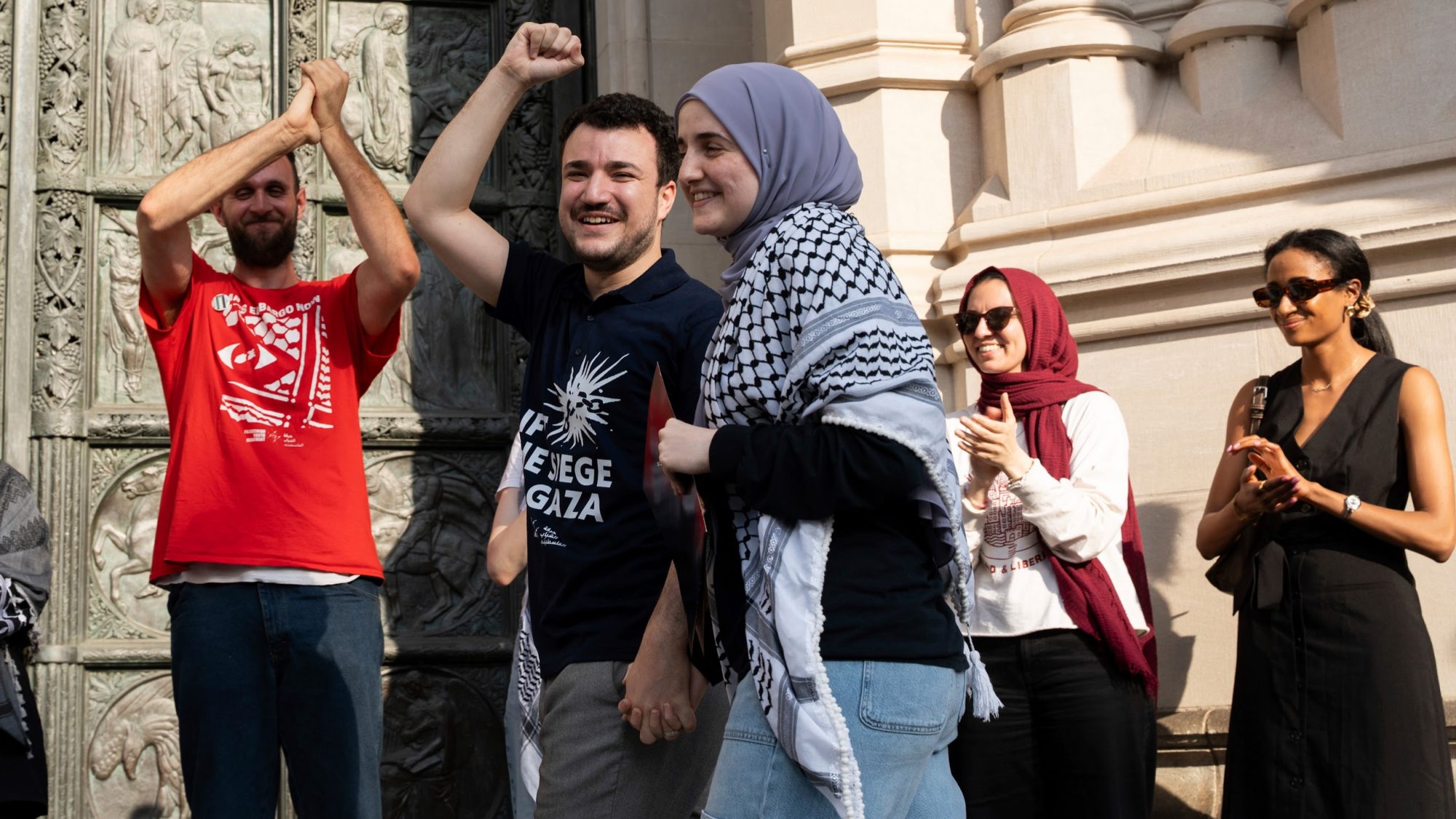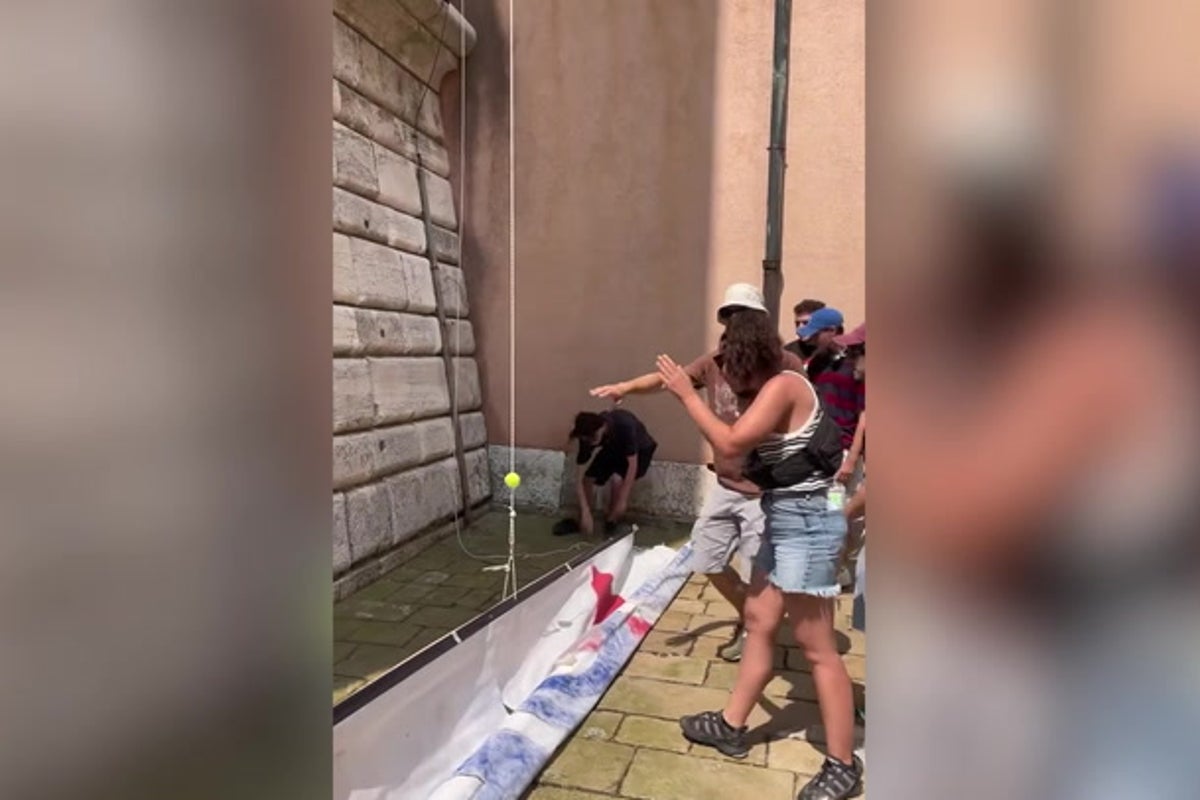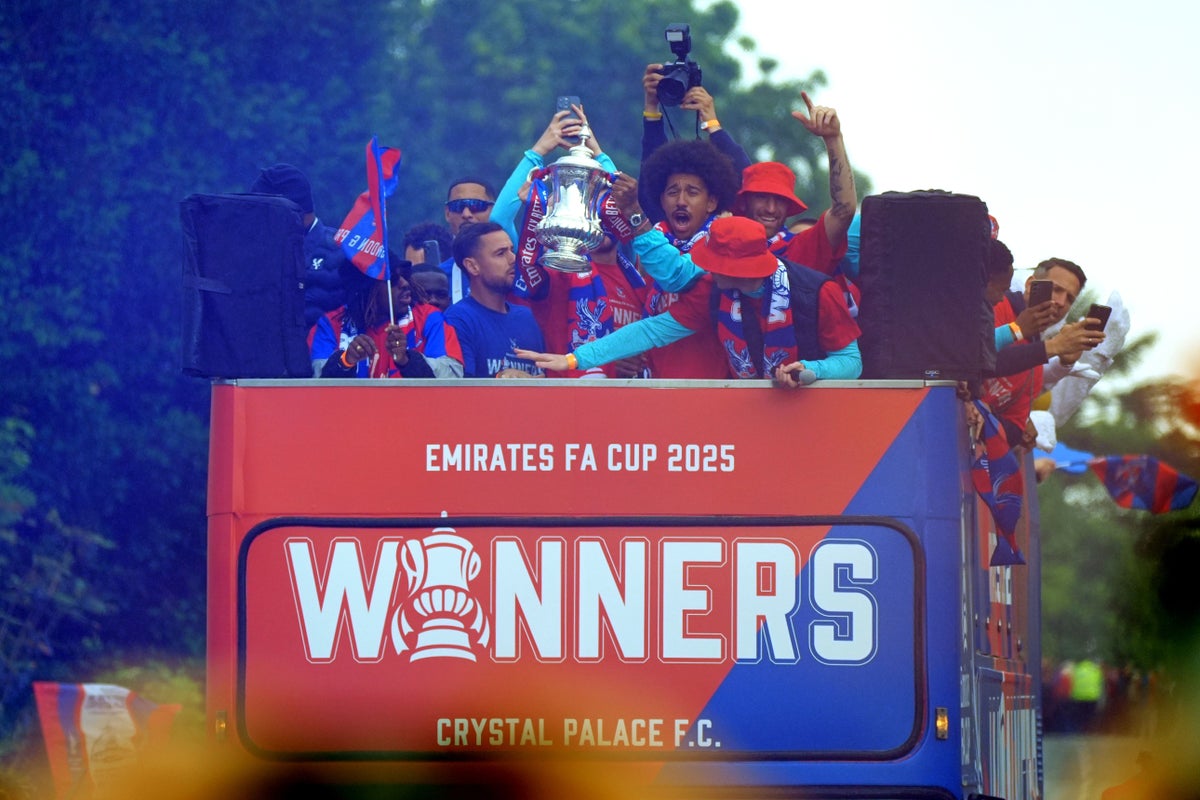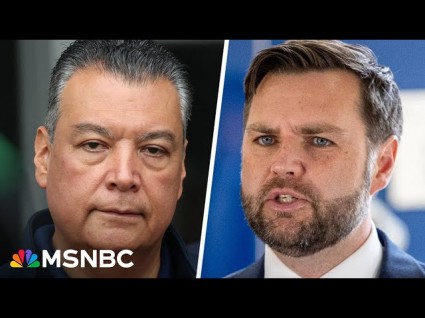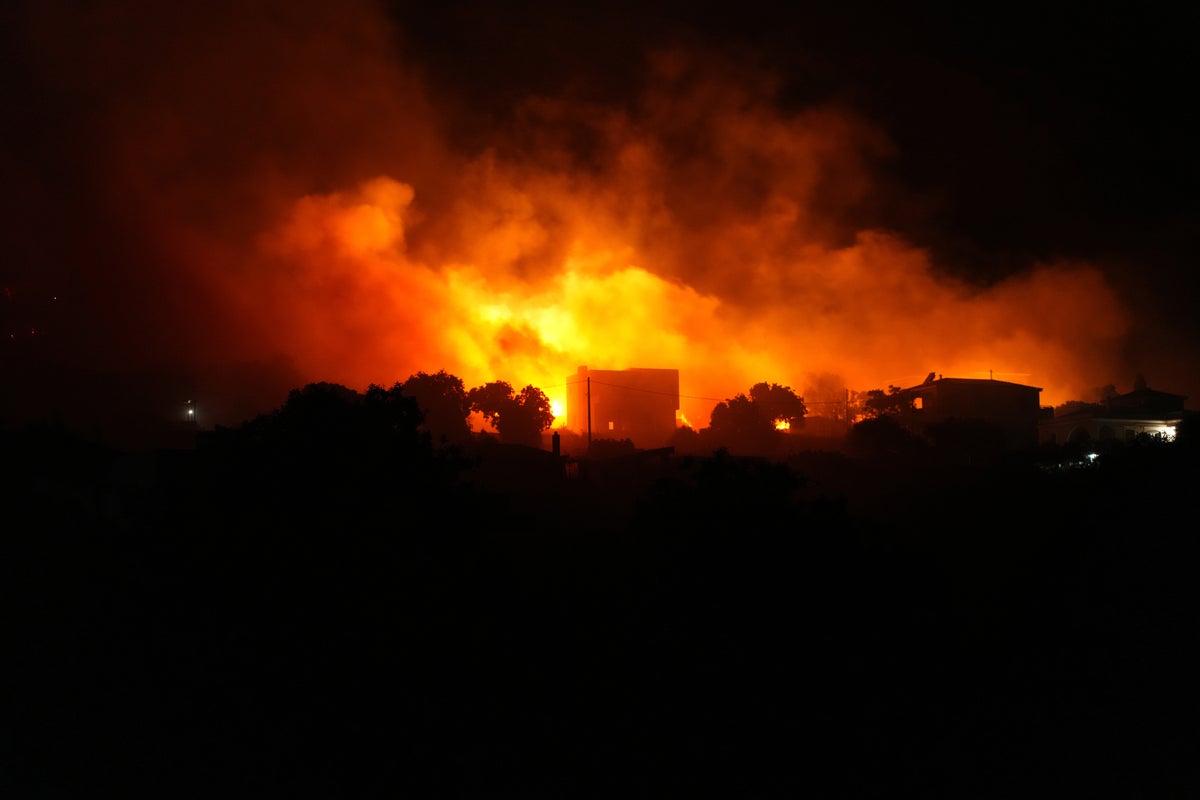On Sunday, Mahmoud Khalil, the former Columbia University graduate student jailed by immigration authorities for more than three months for his role in protests against the war in Gaza, gave his most extensive public comments to date about his detention and the Trump administration’s case against him.
After a federal judge ordered his release on bail from an ICE facility in Jena, Louisiana, Khalil returned Saturday to New York City, where he lives with his wife, Dr. Noor Abdalla, and their son, who was born while he was detained. On Sunday, Khalil, a Palestinian born in a Syrian refugee camp who was studying for his master’s degree at the time of his arrest, spoke to a crowd of supporters from the steps of Cathedral of St. John the Divine, an historic Episcopal church a block from the Columbia campus.
Khalil cast himself as the reluctant face of a wider movement of students fighting for Palestinian rights, some of whom have also been jailed by the Trump administration for their activism. But Khalil was also eager to define himself after months of news coverage and baseless allegations from US Secretary of State Marco Rubio that he is a national security threat.
“The Columbia administration has tried its best to portray me as someone who’s violent,” Khalil told the crowd. Describing himself in the third person, Khalil called himself “a human rights defender,” “a freedom fighter,” “a refugee,” “a father and husband,” and “above all… a Palestinian.”

Khalil, a legal permanent US resident and green card holder, was detained on March 8 by Department of Homeland Security (DHS) agents in the lobby of the building where he lives, near the Columbia campus, as his wife, who was eight months pregnant, watched the whole thing unfold. “It felt like I was literally being kidnapped, where you have plainclothes agents literally snatching you out of your apartment building, without introducing themselves, without introducing an arrest warrant,” Khalil told the crowd. He said he could not communicate with Abdalla, a dentist and US citizen, for the first 30 hours of his detention, which he called “the most difficult time” of the ordeal. “They wouldn’t tell me what I’m being accused of,” he said.
A DHS spokesperson claimed at the time that Khalil “led activities aligned to Hamas, a designated terrorist organization,” but the Trump administration never produced any evidence supporting those allegations. In fact, as my former colleague Sophie Hurwitz reported, Khalil was known as a level-headed spokesperson for last year’s protest encampments at the university and as a mediator in demonstrators’ negotiations with faculty. Khalil’s immigration case is proceeding while he remains out on bail; the Trump administration is trying to deport him, alleging that he lied about his employment history on his green card application. Khalil denies those claims.
At Sunday’s rally, Khalil—who has not been charged with a crime—again maintained that “there isn’t any shred of evidence that what I did or said is wrong.” He lambasted Columbia’s Board of Trustees for expelling and suspending other student protesters, calling its actions “shameful.”
University administrators, he claimed, “in private tell me there is anti-Palestinian racism at Columbia; there is manufactured hysteria about antisemitism at Columbia University because of the protests, but they don’t dare to talk about that in public.” (Spokespeople for the university, the White House, and DHS did not immediately respond to requests for comment.)
“Columbia University will do everything and anything to ensure that the words ‘free Palestine’ are not uttered anywhere near it,” Khalil said. “But while we are here—free, free Palestine,” he added, leading the crowd in a chant.
Abdalla introduced her husband at the rally, and said that while Khalil missed their son’s birth in April, “he will raise [him] with pride, strength, and purpose. And one day our son will know that his father did not bow to fear. He will know that his father stood up when it was hardest and that the world stood with him.”
Khalil said he was jailed with 70 other men in a dorm with no privacy. While he spent his days “listening to one tragic story after another” of men who had been detained due to their immigration status, he took solace in carving the phrase “we will win” in his bunk bed, looking at it before he went to sleep and when he woke up.
Khalil said he sees his release as proof that “we are winning.”
“This is just the beginning of the end—the beginning of the end of the US complicity and the genocide in Gaza, the US unconditional support to the genocidal state of Israel and to Colombia’s complicity in Israel’s crimes,” he said. He also praised student protesters as “our moral compass,” and thanked them for their courage.
“I did not hope to be in this position, and I absolutely don’t want to be the face of the student movement, because there are much more students who are much braver than than me,” Khalil said. “But here I am. I will definitely take that with pride. I would continue to advocate for Palestinian rights no matter the cost.”


